Lei Jun - people call him Steve Jobs of China
Despite the criticism from Apple, Lei Jun still calmly brought Xiaomi to become the hegemon of the Chinese market.He no longer cares whether people say he looks like Steve Jobs because now he is thinking of things bigger than that.
People call him Steve Jobs of China and perhaps this nickname is not given to the wrong person. Just recently, the 45-year-old CEO's company has risen to become the world's most valuable startup with a market capitalization of 46 billion dollars.
Every year, as usual, LEI will reappear familiar with sports shoes, jeans and black shirts with buttons, standing in front of the crowd eagerly waiting for the latest product he cherishes for half a decade. last century. Lei will definitely appear next to the large-scale photos of any product being sold or grab when he revels in analyzing product specifications.
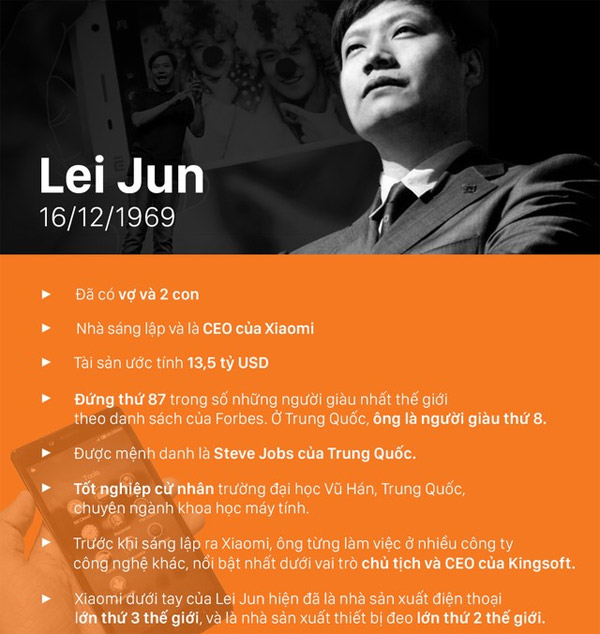
Only when the crowd seemed to be sagging because of the thought that the show had ended, the words 'One More Something ' (white) of a new color gradually appeared evoking on a dark blue background font. That's what Steve Jobs used to make Apple fans burst into surprise at the last minute of the premiere.

The familiar imprint of a familiar figure is found at Lei Jun
Graduated from Wuhan University - one of the first schools in China to train computer engineering, in adulthood, technology becomes indispensable for Lei as a sleep meal. At the beginning, LEI worked at Kingsoft, a software company that offers productivity solutions similar to Microsoft Office.
He began to be known as a hardworking employee and was appointed chief executive after 5 years of dedication. Indeed: 'Long distance knows good horses' - in 2007, after 4 consecutive failures, the company finally succeeded when it was on the Hong Kong Stock Exchange. Lei quickly left Kingsoft on the pretext of feeling " exhausted". In the following years, he was again involved in new deals, joining UCWeb, merged by Alibaba last year. This is also the turning point for LEI to take the position of China's leading technology company. One of the first investors advised by Lei to enter the mobile phone market is Richard Liu.
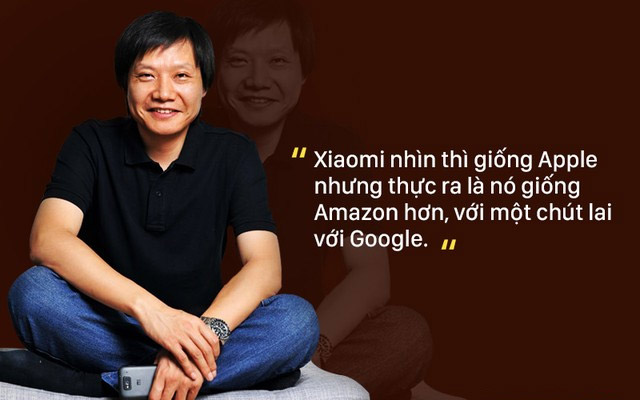
'You are considered successful and talented' - managing director Morningside Group - a venture capital firm based in Shanghai, said - 'Is throwing yourself in the arena again worth it?'
Lei accepted this so that he turned to gather a group, the current predecessor of Xiaomi. Among the recruited members are Lin Bin, former Google executive in China. After the night of night together with chrysanthemum teapot, Lei and his colleagues decided to start venturing in the new mission.
China is famous for dozens of smartphone manufacturers. But this is different: They don't invest in advertising but sell directly to avoid discounts for retailers, as well as rely on the brand's loyalty to promote the world with media. society.
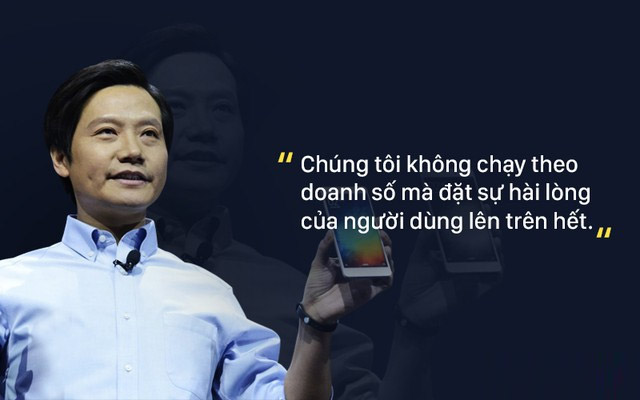
The fledgling company started making profits in 2010 when it released a lightweight version of the Android operating system that could be used to replace the previous software, to be compatible with many phones manufactured by different companies. . This is a wise step to attract interested people before considering more expensive stages: phone design.
When these devices were finally released right next year, they quickly headed to attract Chinese users. Sleek, multifunctional integration with competitive price, Xiaomi is not difficult to beat competitors and dominate the top position for China's most popular smartphone brand. Xiaomi phones sold hundreds of dollars cheaper than the latest products from Apple or Samsung. They become desires whenever they appear on Beijing or Shanghai streets.
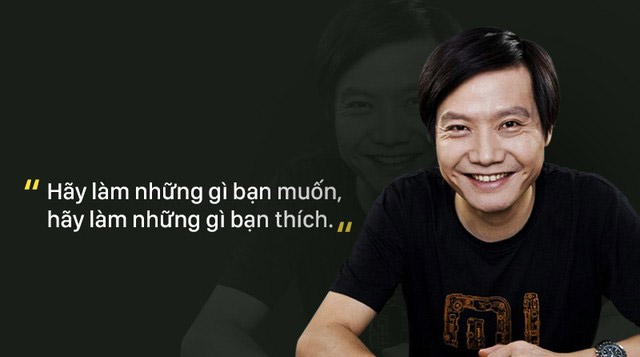
In a country that still has more sophisticated foreign thinking and better quality, Xiaomi is probably considered the first desirable domestic brand in China.'Lei Jun has taken it to a new level' - Phillip Lisio - a consultant who worked for Xiaomi . 'He's among the first to realize that Chinese consumers really need a brand where they can put their trust'.
At the age of 45, Lei seems to have surpassed the late technology leader from California, who once owned the leading computer brand in the United States with a respectable vision. Lei exploded with ideas. Last year he spoke on CNN that he was tired of being compared to Jobs. People who are constantly "comparing" him and the CEO of Apple are still giving half-joking "praise" , implying that Lei's achievement is not due to the visionary ability, simply is an imitation of every detail.
Last year, Jony Ive, a former partner of Jobs, was asked if he felt a bit 'proud' when Xiaomi and many other Asian rivals seemed to be 'copying' the product model. Apple. 'I think it's theft and laziness ' - the design director answered. Meanwhile, Xiaomi vehemently denies this, that Mi phone and Mi pad are not "stolen" from other companies (such as Apple's iPhone and iPad, for example).
A few months ago, the world's leading investors were not sorry to give praise to Lei at the same time and supported a capital of $ 1.1 billion for his company. Xiaomi's current value is 46 billion USD, surpassing any startup in the world. Accordingly, the position of Forbes LEI also ranked with $ 9.1 billion of personal property estimated last year.
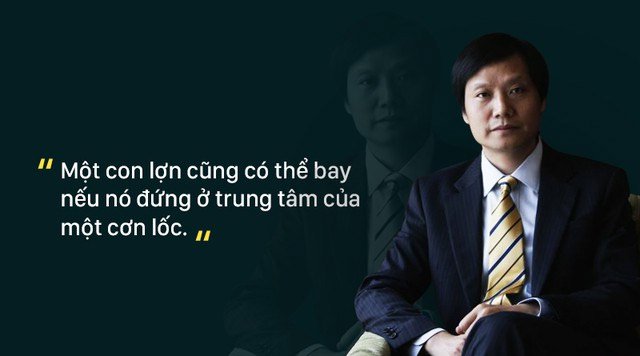
Money will be in hand when the company also pursues ambitions beyond China (Xiaomi currently sells in India) and does not stop on smartphones. A tablet has been released last May and also has a variety of other product lines from TV to air purifiers or cloud computing.
But it seems that the founders of Xiaomi are still "steadily" receiving both praise and criticism. Despite those things, Lei is still calm: 'Even a pig will fly if it stands in the center of the whirlwind' - Lei's favorite saying is here.
Xiaomi is no longer a small pig that has to find a whirlwind, it is now a hurricane.